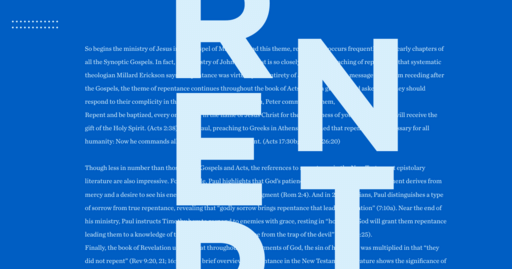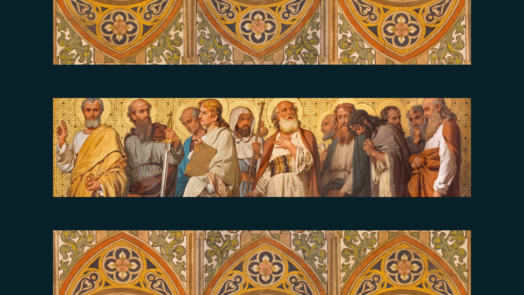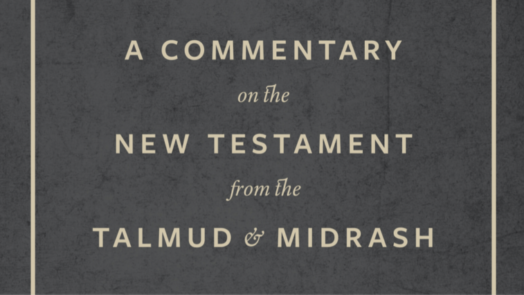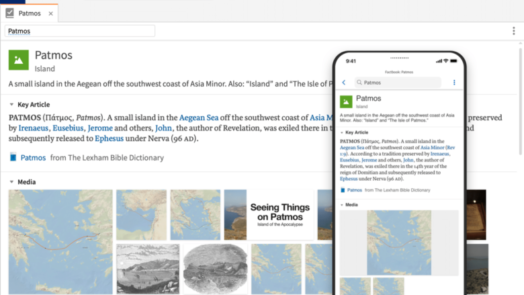The New Testament was originally written in Greek. This claim is not particularly controversial among biblical scholars, though some have argued that parts of the New Testament were originally written in Hebrew or Aramaic. Some popular writers and...
Far from receding after the Gospels, the theme of repentance continues throughout the book of Acts. When a guilty crowd asked how they should respond to their complicity in the death of Jesus, their Messiah, Peter commanded them, "Repent and be...
Why does the NKJV have Acts 8:37? And why doesn’t the ESV include the same content? This article offers an answer—and how to examine the evidence yourself and come to your own conclusion.
There is an idea which floats around in pulpits and Bible studies, and it goes something like this: “Greek is a perfectly precise language which clearly conveys its meaning, and this is the reason why God used Greek for the New Testament.” I do not...
The Lautenschlaeger Award is a prestigious academic prize awarded to ten doctoral or first post-doctoral works in theology and biblical studies. Each winner is awarded a financial prize and the opportunity to propose an international colloquium on a...
Mark Keown is the author of Discovering the New Testament. He sat down with Scott Corbin of Lexham Press to talk about this recently completed three-volume work. What was it like to do a full New Testament theology? Writing Discovering the New...
Introduction The Lautenschlaeger Award is a prestigious academic prize awarded to ten doctoral or first post-doctoral works in theology and biblical studies. Each winner is awarded $10,000 and the opportunity to propose an international colloquium...
Dependent adverbial clauses are a common feature of Koine Greek, generally categorized based on the kind of content conveyed (e.g., conditional, comparative, spatial, temporal, reason/result, etc.). While many spatial and temporal adverbial clauses...
Exploring the Relationship between Education and Spiritual Formation Jeff Dryden | Covenant College Last semester I assigned the classic C. S. Lewis text The Abolition of Man to my New Testament Ethics class. Although it had been at least a decade...
Years ago, the first substantive biblical studies software I purchased was Gramcord. It was a hugely helpful tool at the time but has long since been surpassed by others. Then, while doing my PhD, I switched to Logos and never looked back...
Psalm Two’s familiar contents have made it a favorite among students, pastors, and scholars alike, as it has echoes of the Davidic covenant, eschatological hopes, and the promise of divine justice. The psalm is quoted or alluded to frequently in the...
By James P. Chaisson, Ed.D. Introduction After his resurrection, as he was preparing to leave this earth and ascend to the right hand of the Father, Jesus told his followers, and by extension the church universal, to go into all...
Jeffrey Tripp received a doctorate in New Testament and Early Christianity from Loyola University Chicago, and now teaches Math at Rock Valley College. He often incorporates statistical methods into his biblical research, which focuses on the New...
Lexham Press has just made a significant contribution to biblical studies with the translation, editing, and publication of the massive 3-volume Strack-Billerbeck Commentary on the New Testament from the Talmud and Midrash. Every verse in the...
by Luke Nagy We’ve all heard the saying, “this world is not my home; I’m just a passing thro’.” The words are from a hymn penned in 1919, and arranged in 1937. It reflects a popular attitude among Christians in America at the time, and currently. A...
Here Richard Bauckham answers the question: "What first made you suspect that Matthew used Luke?"
Some time ago my wife and I visited a church we’d never been to before and heard a message about Old Testament promises, specifically from one paragraph in Joshua 1. Take particular note of the promises because the preacher did: This Book of the Law...
Ben White is an up-and-coming young scholar at The King’s College in New York City who has just published his study of 2 Corinthians with Mohr Siebeck. In the following interview, we talk about the premise of his book, Pain and Paradox in 2...
Christopher Croom | Columbia International University Pilate said to Him, “What is truth?” (John 18:38) Introduction This famous portion of Scripture that has been rendered as a standalone verse is directly related to the crucifixion scene of...
Logos is an incredibly useful tool straight out of the box (or off the website). But as with any tool, it can take some time to get to know it well and use it better. As an academic user, you’re also coming to Logos from a specific angle. Your...
What does 'abba' mean? Explore why there's a sanctity in addressing God as Abba Father, a reminder of who we're addressing.
“What does God say about hell?” asks Kris Brossett, kicking off his two-article series on the topic. Brossett proceeds to survey the three historic Christian views of hell—eternal torment, conditional immortality, and universalism—and commendably...
"This [digital] edition will open up the research of the Handbook for easy access...It is a welcome development in the dissemination of the Handbook."
"There are no better guides to the state of scholarship." - John J. Collins
by Kris Brossett In Part I of Kris Brossett’s series he discussed three views of hell, including Eternal Conscious Torment (ECT), Annihilationism/Conditional Immortality (ACI), and Christian Universalism (CU). In this second section, Kris...
"If we truly believe that the church is one body, then we ought to be aware of what is happening in the rest of the world. After all, our scholarship ought to serve the Church and society. This is the concept of unity in diversity and the...
Many know that Dr. Warren Wiersbe's first foray into publishing had more to do with his love of magic tricks than with his spiritual pursuits.
See also Part 1 and Part 2. A Case Study in Matthew 2:1–12 There are forty-seven verbal forms in this pericope; all but 10 verbal forms are perfective aspect. Of those ten forms that are not perfective, one is stative, two are future, and the...
See also Part 1 Verbal Aspect has the Ability to Show Points of Emphasis and De-emphasis In Porter’s analysis of Philippian 2:5-11 the two verbal forms which are not in the perfective aspect are the imperative φρονεῖτε, “Have this mind,” and...
Verbal Aspect is Critical to an Accurate Apprehension of the Text Verbal aspect theory arose to prominence in 1989 and 1990 with the simultaneous work of Stanley Porter and Buist Fanning, who both sought to show how linguistics could further effect...






























